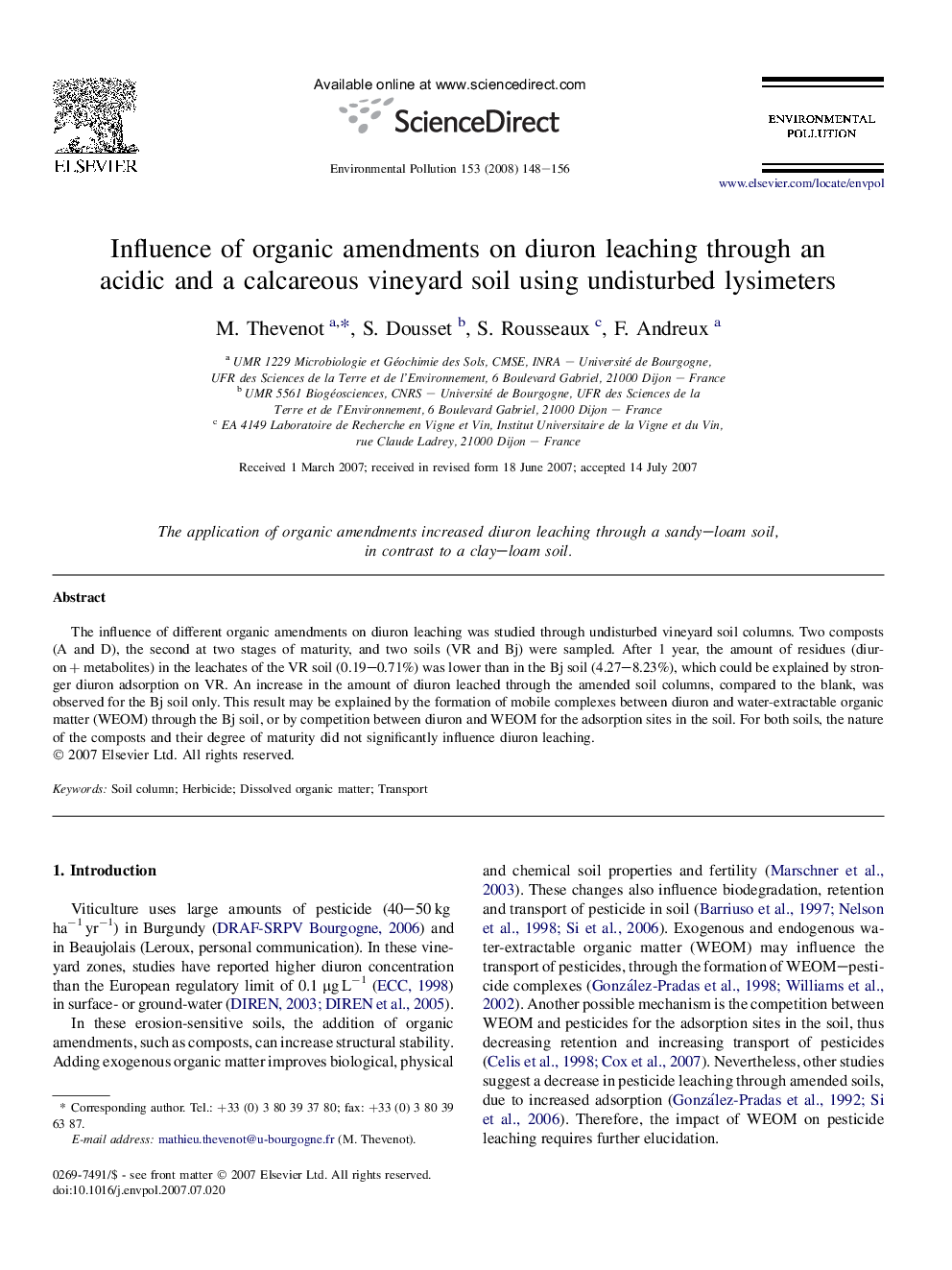| Article ID | Journal | Published Year | Pages | File Type |
|---|---|---|---|---|
| 4426738 | Environmental Pollution | 2008 | 9 Pages |
The influence of different organic amendments on diuron leaching was studied through undisturbed vineyard soil columns. Two composts (A and D), the second at two stages of maturity, and two soils (VR and Bj) were sampled. After 1 year, the amount of residues (diuron + metabolites) in the leachates of the VR soil (0.19–0.71%) was lower than in the Bj soil (4.27–8.23%), which could be explained by stronger diuron adsorption on VR. An increase in the amount of diuron leached through the amended soil columns, compared to the blank, was observed for the Bj soil only. This result may be explained by the formation of mobile complexes between diuron and water-extractable organic matter (WEOM) through the Bj soil, or by competition between diuron and WEOM for the adsorption sites in the soil. For both soils, the nature of the composts and their degree of maturity did not significantly influence diuron leaching.
